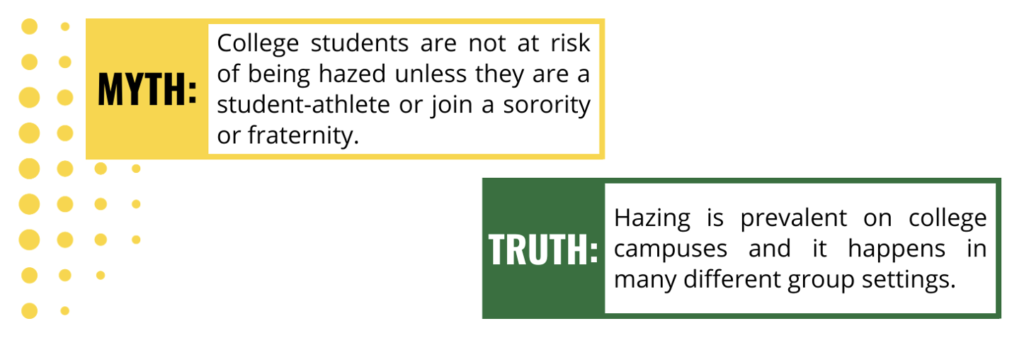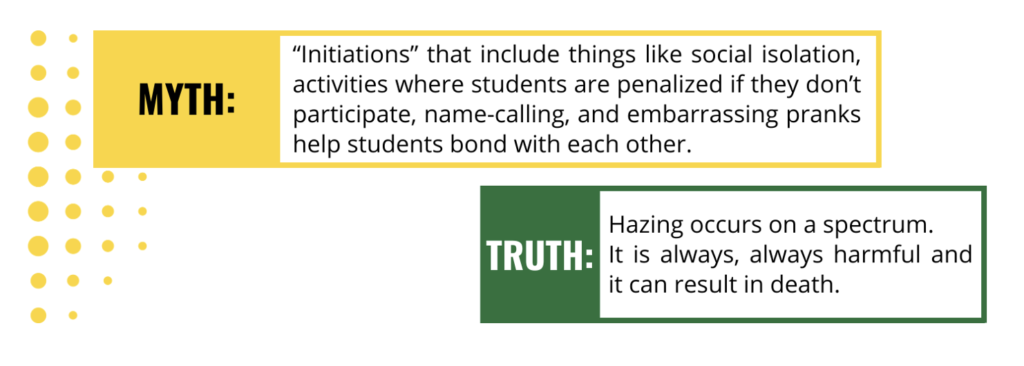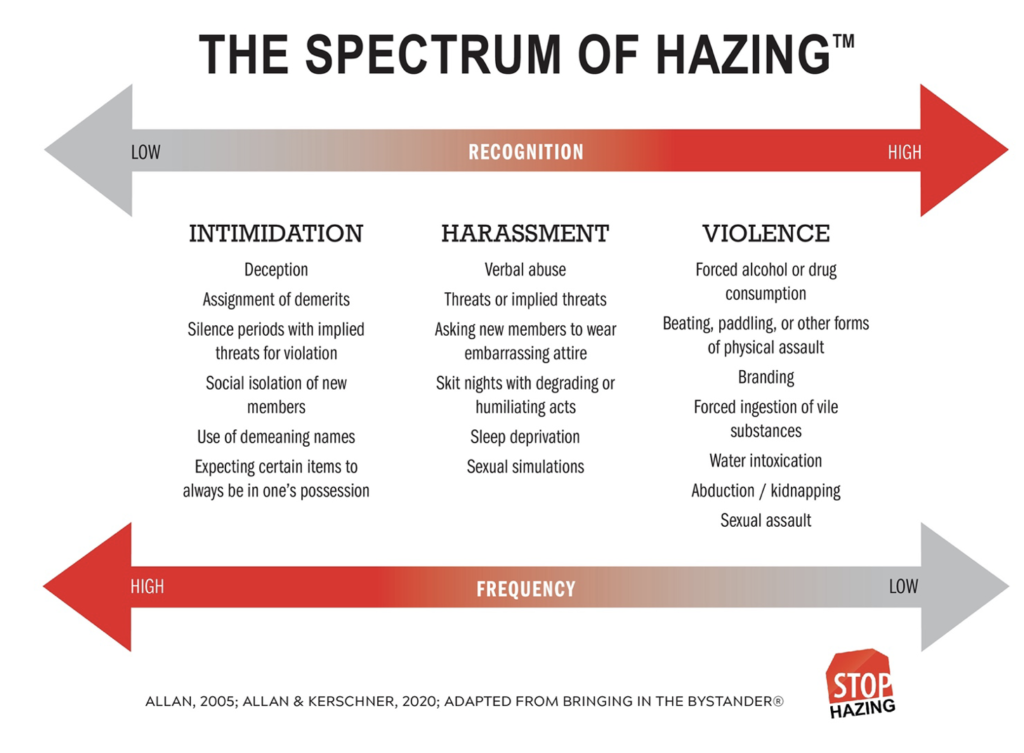When my daughter was in college, she pledged a sorority. I had my concerns. Turns out, they were valid. Even though it was against campus policy for any fraternity or sorority to use hazing on its members, it happened during “hell week”. The hazing not only affected her health but her first semester grades.
As a parent, I voiced my concerns and wanted to report the sorority. My daughter begged me not to get involved. In hindsight, I wish I had.

According to StopHazing, “Hazing is any activity expected of someone joining or participating in a group that humiliates, degrades, abuses, or endangers them, regardless of a person’s willingness to participate.
There are three components that define hazing:
- It occurs in a group context
- Humiliating, degrading, or endangering behavior
- Happens regardless of an individual’s willingness to participate”

THE REALITY
Hazing facts according to the National Study of Student Hazing:
- 55% of college students involved in various groups experience hazing.
- 73% of students participating in fraternities and sororities encounter hazing.
- 74% of varsity athletes report being hazed.
- 95% of hazing incidents are not reported.

STEPS TO SUPPORT AND SAFEGUARD YOUR COLLEGE STUDENT
1. Educate Yourself
Visit the StopHazing website for information and resources. Be sure to take advantage of the FREE access to the HAZING documentary by filmmaker Byron Hurt. You can also attend a FREE Q & A session with Mr. Hurt.
Take a look at the Campus Look Up resource on the HazingInfo website which allows you to access data from states requiring universities to report hazing incidents on their websites.
2. Talk With Your Child Read the StopHazing guest blog for great tips: Help Prevent Hazing: 10 Easy Tips for Talking with your Teen.
3. Support the Stop Campus Hazing Act
Many states do not require colleges and universities to report hazing incidents. In states where schools are required by law to report nearly 50% of colleges and universities fail to do so.
The Stop Campus Hazing Act will require all U.S. colleges and universities to:
- report hazing incidents in their Annual Security Report.
- implement campus-wide research-based hazing prevention programs.
- publish hazing prevention policies and the organizations that have violated them on their website.
You can help this act become federal law! Contact your legislators today by completing this fast and easy online form!

